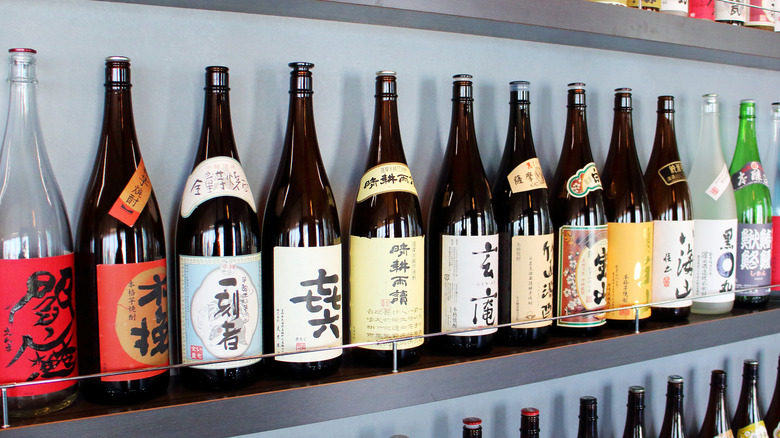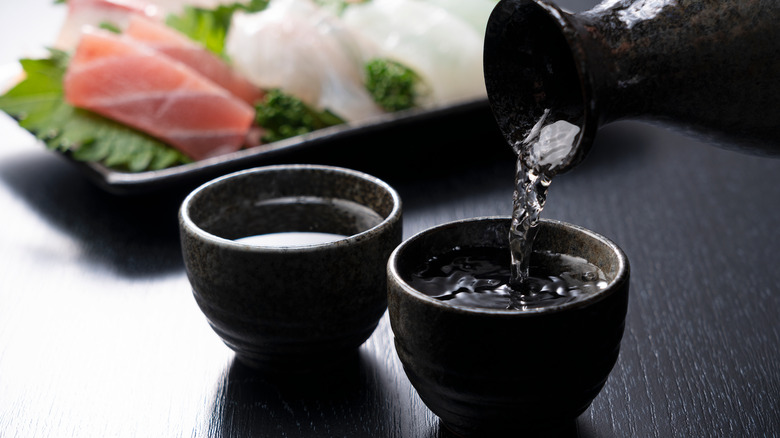The Difference Between Sake And Rice Wine
We may receive a commission on purchases made from links.
You might not be a sake expert, but at least you know it's rice wine, right? Not exactly.
It turns out that calling sake "rice wine" really misses the mark. Technically speaking, wine is fermented grape juice. Rice doesn't qualify, wine blog VinePair points out, so calling rice-based sake wine is incorrect. Sake expert and author of Sake Confidential John Gauntner describes the beverage as "more of a beer than a wine."
Sake is actually made from polished rice kernels that are converted into sugar with the help of a special kind of mold. As Serious Eats describes it, sake makers spread the mold over steamed rice and leave it to sit for about two days. The mold is called koji-kin before it is added to the rice and simply koji once it has fully developed on the rice kernel. The koji-kin converts the starch into sugar, which, with the addition of yeast, then ferments and creates the alcohol. Once the rice ferments and becomes a sort of mash, it is pressed and strained to produce the final product. That's the abbreviated version of sake making anyway.
Grapes, as opposed to rice, already contain the sugars needed to turn into alcohol. In other words, no special mold is required in winemaking. It's the mold that sets sake apart and, as Gauntner says, is "at the very heart of the sake-brewing process."
Sake is unique
While it may be closer to beer than wine, sake is really its own, distinct beverage. Chef Jeffrey Moon, a lead instructor at the International Culinary Center and most recently the executive chef at Japanese fusion concept Kinjo in Brooklyn, calls it "a very unique alcoholic drink that came from Japan that is not a wine or beer. Its method of processing is so different from wine and beer that it needs to be recognized as such."
Nima Ansari, spirits buyer for NYC's Astor Wine & Spirits, agrees. "Simply put, sake is sake," he says. Ansari understands the comparisons to wine. The two have similar alcohol contents and are consumed in similar fashions—sipped slowly, often with food. He likewise acknowledges the comparisons to beer, which is also made from fermented grains. "Both comparisons are justifiable for the purposes of giving consumers a very basic and easily relatable idea of what sake is, but ultimately this great category will be better served if it is treated as its own distinctive drink with a wealth of history, diversity and flavors that stand up on their own merits entirely."
So the next time you're sipping on sake (or throwing down some sake bombs — no shame), thank the mold. Just don't call it wine.

